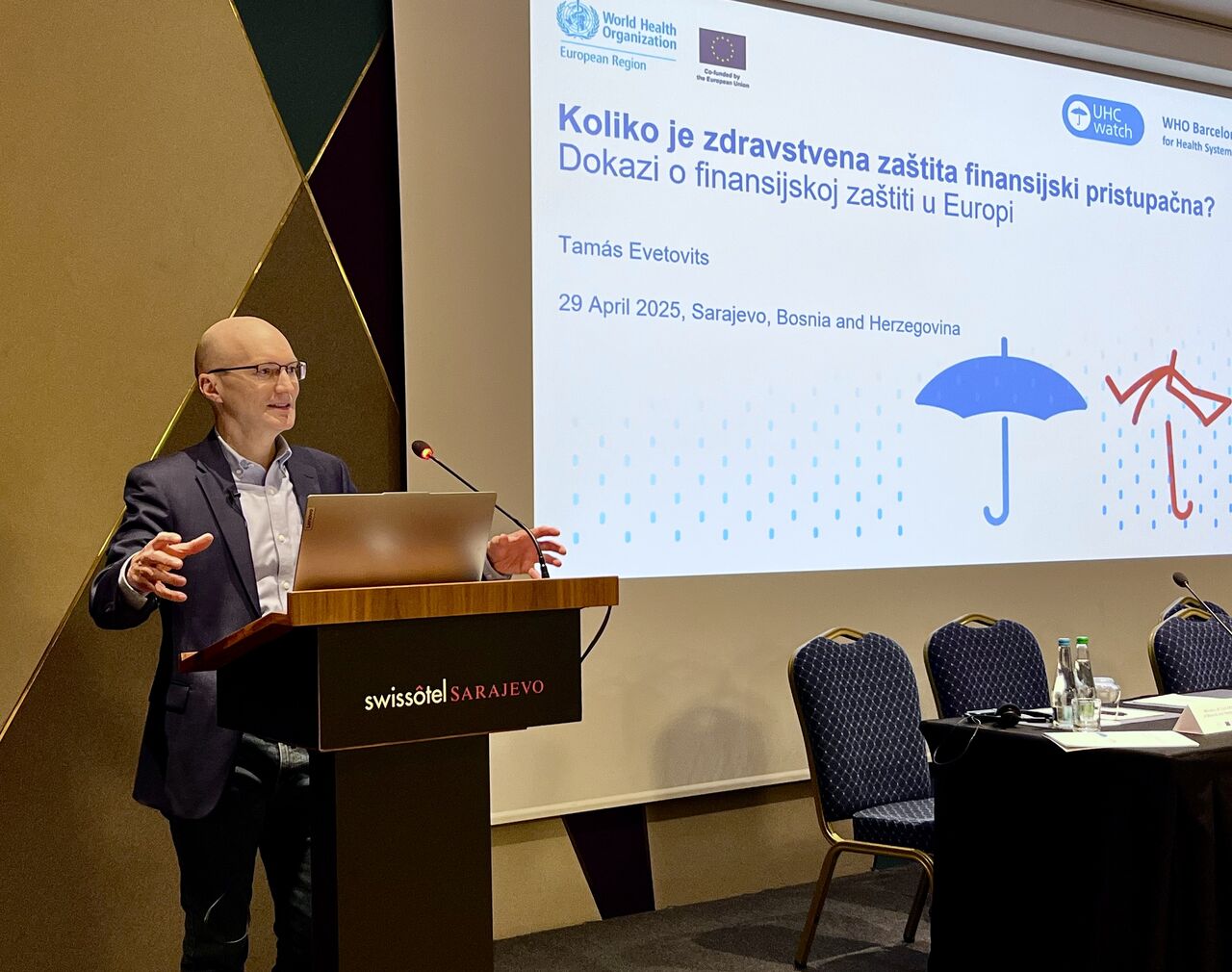A new WHO-led conference in Sarajevo revealed progress in reducing financial hardship from healthcare costs in Bosnia and Herzegovina, while highlighting the need for further equity-focused reforms.
On 29 April 2025, over 30 key health stakeholders gathered in Sarajevo for a landmark conference titled “Can people afford to pay for health care?” Organised by the WHO Barcelona Office for Health Systems Financing and the WHO Country Office in Bosnia and Herzegovina, the event unveiled the first in-depth analysis of financial protection in the Federation of BiH and Republika Srpska. The study, spanning 2004 to 2025, examined population coverage, service availability, and out-of-pocket costs using household budget data.
Findings showed a decline in households facing impoverishment due to healthcare payments—from 7% to 6% in the Federation and from 8.5% to 4.3% in Republika Srpska between 2015 and 2021. While encouraging, these figures remain higher than EU averages and highlight the disproportionate burden on poorer households. Experts emphasised the need for continued reforms, including access to medicines and fair co-payment policies.
The event also previewed the draft report ‘Reimagining Governance for Strategic Purchasing II’, offering actionable insights from across Southeast Europe. Funded by the European Commission, this initiative is part of broader efforts to strengthen health systems financing and move Bosnia and Herzegovina closer to universal health coverage.


